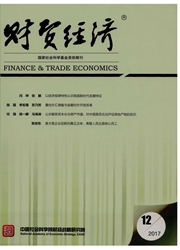

 中文摘要:
中文摘要:
政府与社会资本合作(PPP)模式作为一种新型的公共品提供方式,近年来在全国范围内迅速推广。然而在实践过程中出现的失败案例以及不同行业中PPP模式应用的分布差异均表明,行业特点能够显著影响PPP项目的执行效果。本文抽象出不同行业所具备的行业特征,依此设计政府和企业间提供公共服务的最优合约,讨论行业特征影响合约执行效果的因果机制。研究发现:并非所有行业都适合应用PPP模式。对具有“建设期对运营期的外部性较高”“运营期投入成本较低”“建设期风险较高”“运营期风险较低”等特征的行业来说,应用PPP模式更为合适;反之则应用传统的政府购买服务模式更为合适。此外,两种模式在部分行业中的经济效率仍然不明确,其依赖于其他的技术条件和外部环境。
 英文摘要:
英文摘要:
PPPs are highly valued and have been widely promoted in recent years. However, a large number of PPP failure cases, as well as the uneven distribution of PPP in different sectors, indicate that the government is supposed to be more cautious when choosing between PPP and conventional mode. Therefore, what kind of sector characteristics would affect the success of PPP projects and how they are affected deserve serious consideration. This paper abstracts the sector characteristics of different sectors, and designs the optimal contract arrangement between the government and enterprises to provide public services. It also discusses how the sector characteristics affect the implementation and effectiveness of the contracts. We find that not all sectors are suitable to apply PPP mode. It's optimal to apply PPP mode for the sectors with positive externality across the building and operating stage, low operating effort costs, high building risk and low operating risk. Otherwise, it's optimal to apply conventional mode. Nevertheless, which mode should be chosen remains uncertain for some sectors. It depends on other conditions and the external environment.
 同期刊论文项目
同期刊论文项目
 同项目期刊论文
同项目期刊论文
 期刊信息
期刊信息
